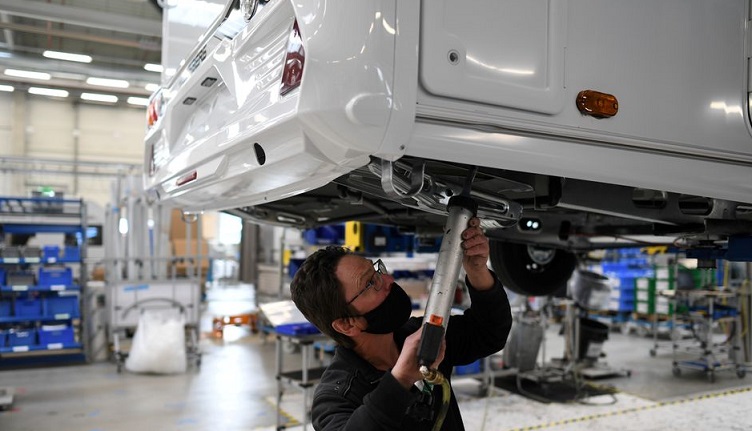Manufacturing activity across the euro zone shrank for a second month in August, according to a survey which showed weak demand meant factories were unable to sell as much as they made and built up stocks of finished goods at a record pace.
As in many other parts of the world, Europe is enduring a cost of living crisis, and faced with soaring energy and food bills many consumers are reining in their spending.
S&P Global’s final manufacturing Purchasing Managers’ Index (PMI) dipped to 49.6 in August from July’s 49.8, below a preliminary reading of 49.7 and further below the 50 mark separating growth from contraction.
An index measuring output, which feeds into a composite PMI due on Monday and is seen as a good guide to economic health, nudged up to 46.5 from 46.3 but marked its third month of sub-50 readings.
“The euro area’s beleaguered manufacturers reported a further steep drop in production in August, meaning output has now fallen for three successive months to add to the likelihood of GDP falling in the third quarter,” said Chris Williamson, chief business economist at S&P Global.
“Forward-looking indicators suggest that the downturn is likely to intensify — potentially markedly — in coming months, meaning recession risks have risen.”
The new orders index remained well below breakeven, holdings of raw materials increased again, backlogs of work were run down, and stockpiles of completed products increased at a record pace.
A stocks of finished goods index climbed to 53.3 from 52.5,the highest since the survey began in mid-1997.
“Falling sales have not only led increasing numbers of factories to cut production, but have also meant warehouses are filled with unsold stock to a degree unprecedented in the survey’s 25-year history,” Williamson said.
“Similarly, raw material inventories are accumulating due to the sudden and unexpected drop in production volumes.”





